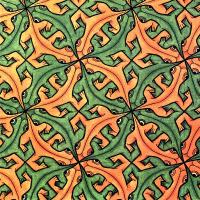Tin nhắn: 20
Nội dung: English
Famis (Xem thông tin cá nhân) 20:37:54 Ngày 17 tháng 12 năm 2013
I'd like to figure out which is which because I'm a confused little pancake. Any assistance is appreciated. I'm just starting to study Esperanto, so please forgive me if this is an obvious question.
erinja (Xem thông tin cá nhân) 20:54:15 Ngày 17 tháng 12 năm 2013
jismith1989 (Xem thông tin cá nhân) 20:54:18 Ngày 17 tháng 12 năm 2013
Famis:Is the Esperanto word "oranĝo" the same as the colour orange or the citrus fruit orange?Oranĝo is the fruit, whilst oranĝkoloro (/-a) is the colour.
I'd like to figure out which is which because I'm a confused little pancake. Any assistance is appreciated. I'm just starting to study Esperanto, so please forgive me if this is an obvious question.
That seems a bit long-winded though, so I'm sure it'd get shortened down with frequent use.
EDIT: Ah, just beaten to it!
Nile (Xem thông tin cá nhân) 21:07:19 Ngày 17 tháng 12 năm 2013
Famis (Xem thông tin cá nhân) 21:11:01 Ngày 17 tháng 12 năm 2013
jismith1989 (Xem thông tin cá nhân) 21:20:44 Ngày 17 tháng 12 năm 2013
Nile:Ido has a suffix for colors: -e, so I guess if it's eventually borrowed into Esperanto, we could say orangxea.Yeah, I like that innovation. Colours are a pretty fundamental thing. Then presumably you could say something like kotea, 'mud-coloured', or sunea, 'sun-coloured', and other cool things like that.
Maybe a two-letter suffix would have made it a bit easier to recognise though (and removed confusion when it comes to adjectives that already end in -ea like armea), but you can't have everything!
erinja (Xem thông tin cá nhân) 21:30:17 Ngày 17 tháng 12 năm 2013
jismith1989 (Xem thông tin cá nhân) 21:37:37 Ngày 17 tháng 12 năm 2013
erinja:It's incredibly rare for a new suffix to be introduced into Esperanto, and other than -end-, most of these suffixes hover on the fringes of respectability, languishing in the "semi-official" suffix lists, spurned by the writers of most textbooks (see: -iv-). The -e- suffix for color is a new one to me, I've never even heard of it. I wouldn't hold my breath about its adoption. I rate the chances at roughly.... zero.Probably true, but it's still quite nice. I would have thought that -end would have been an early suffix because it comes from Latin (e.g. Latin agendum, something to be done, or Latin dividendum, something to be shared out, and obviously we have "agenda" and "dividend" in English from those sources), but maybe not. I suppose for an artificial language it matters whether you make it into the textbooks or not, because that's what everyone's going to use.

donar (Xem thông tin cá nhân) 21:47:39 Ngày 17 tháng 12 năm 2013
jismith1989:Is it wrong to say "sunkolora" for sun-coloured? According to esperanto's mudular system (sun(a) + kolora). I guess it is possibleNile:Ido has a suffix for colors: -e, so I guess if it's eventually borrowed into Esperanto, we could say orangxea.Yeah, I like that innovation. Colours are a pretty fundamental thing. Then presumably you could say something like kotea, 'mud-coloured', or sunea, 'sun-coloured', and other cool things like that.
Maybe a two-letter suffix would have made it a bit easier to recognise though (and removed confusion when it comes to adjectives that already end in -ea like armea), but you can't have everything!
jismith1989 (Xem thông tin cá nhân) 21:51:24 Ngày 17 tháng 12 năm 2013
donar:Is it wrong to say "sunkolora" for sun-coloured? According to esperanto's mudular system (sun(a) + kolora). I guess it is possibleThat doesn't seem wrong to me, I'm pretty sure everyone would know what you were getting across there. It's just a bit of a gobful.
 Though I bet it doesn't come close to some of the huge German compound words, right?
Though I bet it doesn't come close to some of the huge German compound words, right?So yeah, that's probably the best way of doing it in proper Esperanto.




